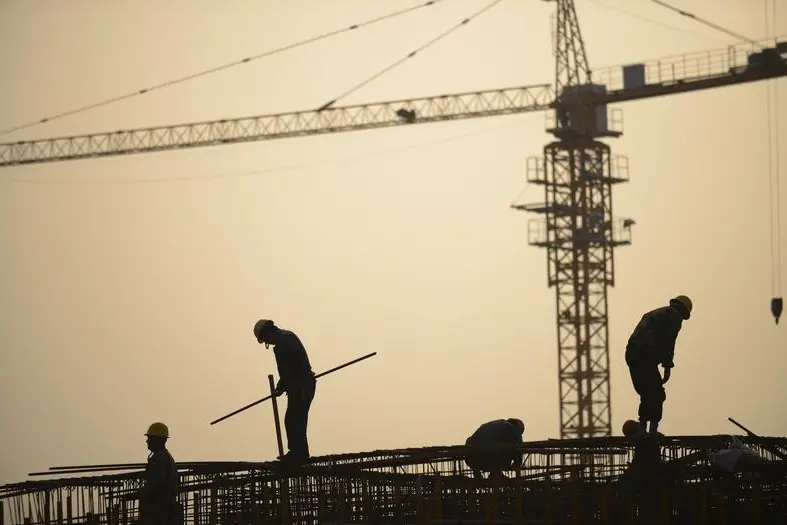PHOTO
BEIRUT: A stalled project to expand Jouniehs crumbling and congested highway took steps toward implementation recently when a series of government land acquisitions were launched, after President Michel Aoun reportedly pushed for progress on the matter. A tender for the project, which aims to expand the 10.2-kilometer stretch of highway between Nahr al-Kalb and Tabarja in Kesrouan by one lane, making it three, in addition to adding a service lane, is set to be launched in a few days, Presidential Engineering Adviser Antoine Souaid told The Daily Star Tuesday. The project itself was funded by a loan from the European Investment Bank to the tune of 75 Million euros ($87,3 million).
The cost of successful bids will then be assessed and the company that offers the best deal will be selected, Souaid said. Construction is expected to begin in the autumn.
The process of removing unlicensed structures on the roadside is already underway. Funds are also being paid out to affected property owners. A total of $35 million will have to be paid out to owners of 30 private plots of land that the highway will pass through. Today, the [acquisition and compensation] is being carried out. The EIB said it had to be done before the tender could begin, Souaid said.
Construction was initially expected to take roughly four years. However, Souaid said the anticipated duration had been lowered to two and a half years after Aoun asked the Council for Development and Reconstruction to enforce 24/7 construction on the highway.
The project had been held up in part by steep expectations for compensation, which Souaid said had at times been at between $100 million and $200 million. Then we determined [the value] was $35 million and now theres no problem.
As the project moves forward, criticism has emerged from various stakeholders. Elias Beaino, the mayor of Zouk Mikael, a town near the beginning of the Jounieh highway, said that the project had first been proposed in 1994 and that its implementation now was a catastrophe.
Beaino said that, at the time the project was suggested, 90,000 cars traveled through the Nahr al-Kalb tunnel each day. Today, that number has reached 165,000. Therefore, the three lanes are not enough to decrease traffic, the government has to think of alternatives, he told The Daily Star. Beaino said his municipality had agreed to the project in 2006, but that they were no longer on board 12 years later. He said the project was being implemented because the money for it is still available, so they want to use it.
Additionally, Beaino raised concerns about an increase in traffic during the construction phase. Ongoing construction of the Jal al-Dib bridge in Metn dubbed as a necessary project that will alleviate traffic in that area has worsened congestion there. Souaid said it was unclear whether there would be a similar increase in congestion during the Jounieh project, and that the CDR was looking into all options for providing alternative routes. Beaino said that in all likelihood this would be a further catastrophe.
Today, if a car tire bursts on the highway, we get a massive traffic jam. Theres just no room for this.
Souaid himself said that the Jounieh highway expansion was by no means the final solution to Lebanons chronic traffic crisis. Souaid said the final solution is the Dbayeh-Okaibeh highway, a 19.2-kilometer project that has not yet been approved by Cabinet. That plan would see a new highway built over and under mountains between those two areas, passing through Jeita, Aintoura and Adma.
Adding to criticism of the Jounieh project, many highway-side business owners have complained that their shops will be negatively affected by a planned cement wall separating the new service lane from the main road though this is arguably necessary to deal with the current traffic-inducing status quo, where drivers get on and off the road wherever they please.
Urban planning experts have also long said that new highway projects were no substitute for implementing a comprehensive public transport plan, including buses and, potentially, trains.
The basic idea all transportation engineers know is that, if you expand any highway by one lane, it takes about two years for that to become congested like the ones before, because youre encouraging people to use cars, Mona Fawaz, professor of urban studies and planning at the American University of Beirut, told The Daily Star.
When there were plans to implement public transport projects in greater Beirut with loans from the recent CEDRE conference for Lebanons economy and infrastructure, Fawaz said it was critical for the government to have a unified vision of the transport sector.
If you are taking a loan for public transport and at the same time taking a loan for [a project benefiting] private cars, then you can be sure no one will see the public transportation, she said. We need to be encouraging the public transport system if we want it to work.
Copyright 2018, The Daily Star. All rights reserved. Provided by SyndiGate Media Inc. (Syndigate.info).





















